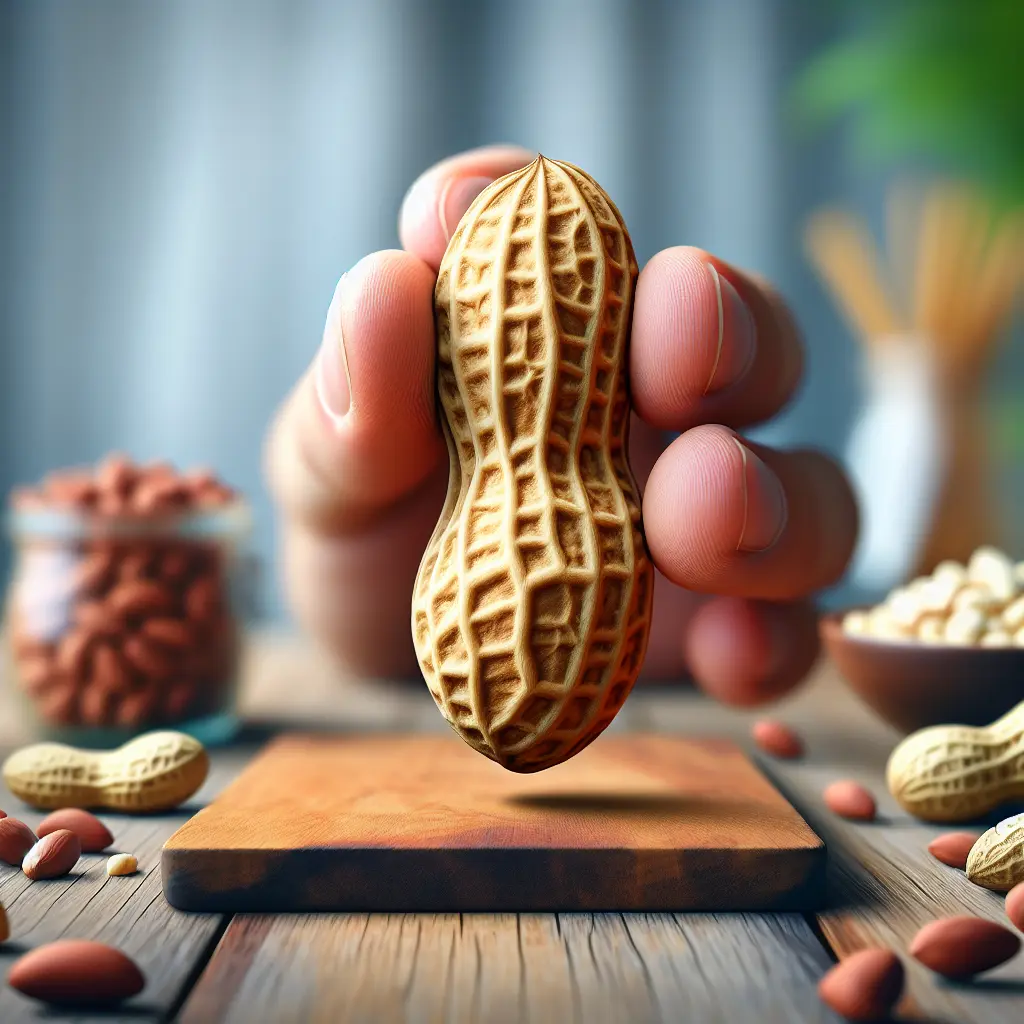Peanuts: A Nutritious and Versatile Superfood
Peanuts, despite being commonly classified as nuts, are actually legumes. They are packed with an impressive array of nutrients, making them a valuable addition to a healthy diet. This article explores the nutritional profile, health benefits, and culinary versatility of peanuts.
Nutritional Profile
Peanuts are a rich source of essential nutrients. A single serving of 1 peanut provides the following:
- Calories: 5.9
- Protein: 0.2 grams
- Fat: 0.5 grams
- Carbohydrates: 0.2 grams
- Fiber: 0.1 grams
- Sugar: 0.1 grams
Peanuts are particularly high in protein, providing more protein per gram than most other legumes. They are also a good source of healthy fats, including monounsaturated and polyunsaturated fats. Additionally, peanuts are rich in fiber, which promotes digestive health and satiety.
Health Benefits of Peanuts
The impressive nutritional profile of peanuts translates into numerous health benefits. Here are some of the key health benefits associated with peanut consumption:
-
Heart Health: Peanuts are rich in heart-healthy fats, which can help lower LDL (bad) cholesterol levels and increase HDL (good) cholesterol levels. Additionally, peanuts contain antioxidants that protect against oxidative damage, which can contribute to heart disease.
-
Diabetes Management: The high fiber content of peanuts helps regulate blood sugar levels, making them a suitable snack option for individuals with diabetes or prediabetes.
-
Weight Management: Peanuts are a relatively low-calorie food that provides a feeling of fullness due to their protein and fiber content. This can aid in weight management by promoting satiety and reducing overall calorie intake.
-
Bone Health: Peanuts are a good source of calcium and magnesium, which are essential for maintaining strong and healthy bones.
Culinary Versatility of Peanuts
Peanuts are a culinary delight that can be enjoyed in various ways. Here are some popular culinary uses of peanuts:
-
Snacks: Peanuts are a popular snack food that can be eaten raw, roasted, or salted.
-
Salads: Peanuts can add a crunchy texture and nutty flavor to salads.
-
Sandwiches and Wraps: Peanuts can be used as a protein-rich addition to sandwiches and wraps.
-
Desserts: Peanuts are a common ingredient in desserts such as peanut butter cookies, peanut brittle, and ice cream.
-
Peanut Butter: Peanut butter, made from ground peanuts, is a versatile spread that can be used in sandwiches, smoothies, and baked goods.
In conclusion, peanuts are a nutritious and versatile superfood that offers numerous health benefits. Their rich nutrient profile, including protein, healthy fats, fiber, and antioxidants, makes them a valuable addition to a healthy diet. Whether enjoyed as a snack, incorporated into meals, or used as an ingredient in desserts, peanuts add both nutritional value and culinary delight to any occasion.
How many calories are in Peanut?
Each 1 peanut of Peanut contains 5.9 calories.
Peanut Nutritional Information
| Nutrient | Amount per 1 peanut (1g) |
|---|---|
| Calories | 5.9 Calories |
| Protein | 0.2g |
| Fat | 0.5g |
| Saturated Fat | 0.1g |
| Cholesterol | 0mg |
| Carbohydrates | 0.2g |
| Dietary Fiber | 0.1g |
| Sugar | 0.1g |
| Sodium | 0.0041mg |
| Potassium | 0.0063mg |
| Calcium | 0.0006mg |
| Iron | 0mg |
